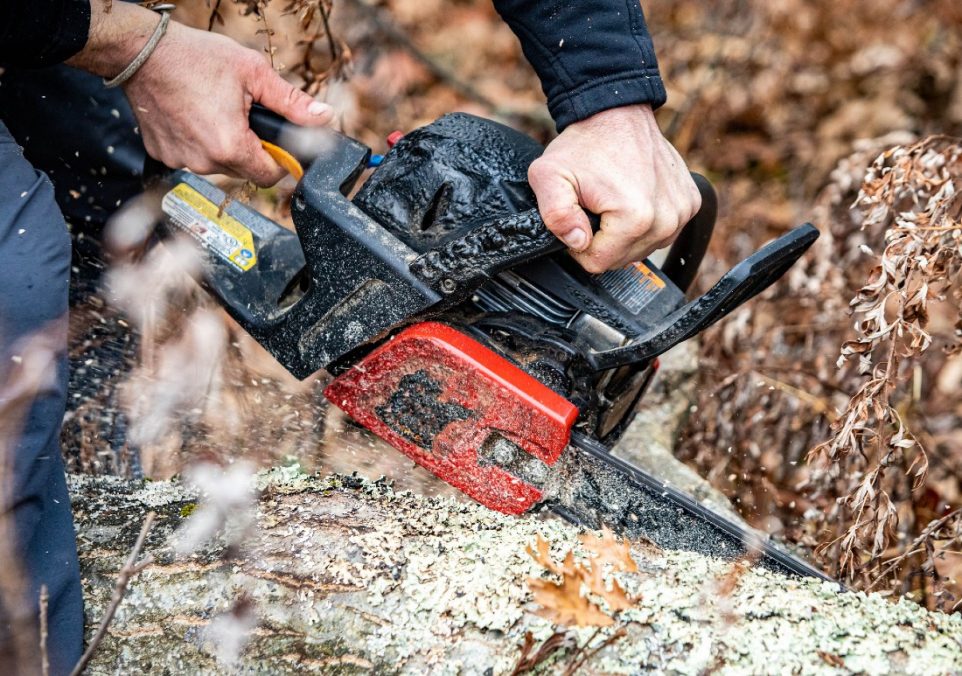Electric vs Gas Chainsaw: What’s the Difference and Which One Is Better?

The debate between electric and gas chainsaw is an ongoing one. If you’re gearing up for some serious woodcutting or even just prepping for occasional yard work, knowing the differences can make all the difference. Whether you’re leaning towards the convenience of electric or the power of gas, you’ll get a clearer picture of which type suits your needs best by the end of this article.
This blog post will compare electric and gas-powered tools, exploring their features, benefits, and drawbacks. From performance and power to maintenance needs, we will break down everything you need to know about choosing the ideal tools for your needs. So, do a comparison between electric and gas chainsaw, and see which one wins!
Related: A Beginner’s Guide to Chainsaws
Power and Performance
When it comes to raw power, gas chainsaws typically have the upper hand. They’re designed to handle larger trees and tougher jobs without breaking a sweat. If you’ve ever worked with one, you know they deliver the kind of force that makes quick work of thick logs and heavy branches. But with that power comes a bit more responsibility—gas chainsaws require regular maintenance, from fueling to cleaning the air filters, and they’re not exactly quiet.
Electric chainsaws, on the other hand, offer a different kind of convenience. They’re generally lighter, easier to start, and perfect for smaller jobs around the yard. If you’re cutting up firewood or pruning trees, an electric chainsaw might be all you need. They’re quieter, which means you won’t disturb the whole neighborhood, and they don’t require gas or oil, making them a bit cleaner to operate. However, they rely on batteries or power cords, which can limit their run time and mobility.
Ease of Use
One of the significant differences between electric vs gas chainsaw is mobility. Gas chainsaws offer the freedom to move around without worrying about power sources. If you’re out in the woods or far from an outlet, gas is the way to go. Their portability makes them ideal for remote work, where access to electricity isn’t guaranteed.
Electric chainsaws, particularly battery-powered models, are gaining ground in terms of mobility. But they still have limitations. The run time is tied to the battery life, which means you might find yourself needing a recharge in the middle of a job. Corded electric chainsaws, while powerful, tether you to an outlet, which can be a hassle if you’re working in a large area.
Longevity
Maintaining a gas chainsaw is more involved than an electric one. With gas, you’re looking at regular oil changes, fuel mixing, and keeping the engine in good shape. They also need more frequent sharpening of the chain due to their higher power output, which wears the chain down faster. However, if maintained well, a gas chainsaw can last for many years, even with heavy use.
Electric chainsaws are lower maintenance in comparison. There’s no need to worry about fuel or engine issues, and they generally require less frequent chain sharpening. However, the battery life can degrade over time, and replacement batteries aren’t cheap. While they might not last as long as a gas chainsaw with heavy use, they can be more cost-effective and easier to manage for lighter tasks.
Environmental Impact
Environmental considerations have become increasingly important, and this is another area where electric chainsaws shine. They produce zero emissions during use, making them the greener option. For those looking to reduce their carbon footprint, electric is the clear choice. They’re also much quieter, which can be a significant advantage if you’re working in a residential area.
Gas chainsaws, while powerful, are known for their noise and emissions. The two-stroke engines they typically use are not the most environmentally friendly. If you’re using your chainsaw regularly, the noise and fumes can become an issue, both for you and those around you.
Cost
The initial cost of a chainsaw is just one part of the equation. Gas chainsaws tend to be more expensive upfront and come with ongoing costs for fuel, oil, and more frequent maintenance. If you’re using it regularly for heavy-duty work, these costs can add up.
Electric chainsaws are generally cheaper to buy and operate. You’ll save on fuel, and maintenance is minimal. However, if you need multiple batteries to get through a big job, the cost can rise quickly. It’s essential to consider how often you’ll use the chainsaw and for what kind of tasks when weighing the cost differences.
Electric vs Gas Chainsaw: Which is Right for You?
Deciding between an electric vs gas chainsaw ultimately comes down to your specific needs. If you’re a homeowner looking for a chainsaw to handle occasional yard work, an electric chainsaw might be all you need. They’re user-friendly, low maintenance, and perfect for smaller jobs. Plus, they’re quieter and better for the environment, which are big pluses.
If you’re dealing with larger trees, tougher jobs, or need a tool that can handle hours of work without stopping, a gas chainsaw is likely the better option. The power and portability they offer make them ideal for more demanding tasks. Yes, they require more maintenance, and yes, they’re louder, but for many, the benefits outweigh these drawbacks.